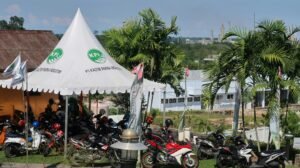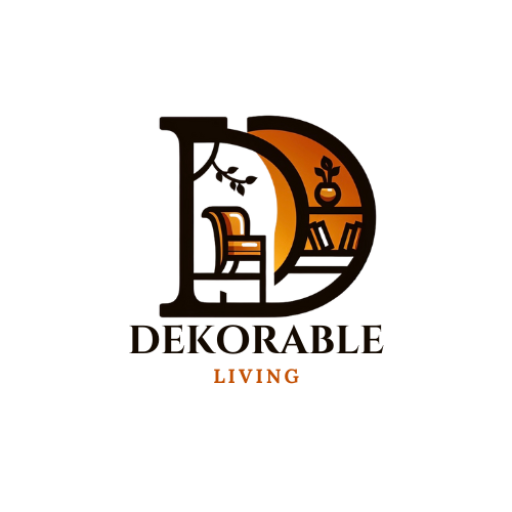
What is SVLK Certification?
SVLK, which stands for Sistem Verifikasi Legalitas Kayu, translates to the Wood Legality Verification System. This initiative was developed by the Indonesian government to ensure that timber and timber products are sourced from legally harvested wood. The primary purpose of SVLK certification is to promote sustainable forestry practices while combating illegal logging, which has been a significant issue in Indonesia and contributes to environmental degradation and biodiversity loss.
The SVLK certification process involves several rigorous steps designed to trace the legality of timber from the source to the end product. It begins with the establishment of a comprehensive framework that includes documentation verification, monitoring, and compliance assessments. Participating companies must demonstrate that their operations adhere to Indonesia’s laws concerning forestry, land-use, and environmental protection. This verification not only helps ensure that timber is sourced responsibly but also enhances transparency within the supply chain, fostering trust among consumers and businesses alike.
As the importance of sustainable wood sourcing grows globally, SVLK certification has gained recognition in the international timber market. It serves as a benchmark for legal and sustainable timber, allowing certified products to meet the demands of eco-conscious consumers and organizations. By aligning with SVLK, companies can improve their market access and reputation while contributing to the overarching goals of sustainable development and forest conservation.
Furthermore, the certification supports efforts to improve the livelihoods of local communities who rely on forest resources, ensuring both environmental and social benefits. As more countries and organizations recognize the value of sustainable practices, SVLK-certified wood plays a crucial role in promoting responsible consumption and production patterns in the global timber industry.
The Importance of SVLK Certification
The SVLK (Sistem Verifikasi Legalitas Kayu) certification plays an essential role in promoting sustainable forestry practices, both environmentally and economically. From an environmental perspective, SVLK certification contributes significantly to the preservation of forests and the maintenance of biodiversity. By ensuring that timber is harvested legally and sustainably, this certification helps mitigate the risks of illegal logging, which has detrimental effects on forest ecosystems. Sustainable forest management, encouraged by SVLK, fosters the regeneration of tree species, thus preserving habitats for various flora and fauna while ensuring that forests continue to provide essential ecosystem services.
On the economic front, SVLK certification creates a more equitable market for timber products. It establishes a framework for fair trade practices, ensuring that producers adhere to ethical standards that benefit both the environment and local communities. This certification not only supports responsible harvesting methods but also stimulates local economies by providing fair wages and improving labor conditions in the forestry sector. Furthermore, timber that is SVLK certified gains better market access, particularly in international trade. Countries with stringent environmental regulations are keen on ensuring that imported wood products comply with SVLK standards, thereby increasing demand for certified wood. As consumers become more environmentally conscious, the market for SVLK-certified wood is expected to grow, further incentivizing producers to obtain certification.
For consumers, choosing SVLK-certified wood signifies a commitment to responsible sourcing. Informed consumers are increasingly favoring products that are environmentally friendly and socially responsible, making SVLK certification an essential consideration for those who wish to support sustainable practices. By purchasing certified wood, consumers not only contribute to forest conservation but also support fair trade practices, ultimately driving demand for eco-friendly products. Thus, the importance of SVLK certification extends beyond mere regulatory compliance; it represents a vital step towards a more sustainable future for both our environment and global economies.
The SVLK Certification Process
The process of obtaining SVLK certification is a structured approach designed to ensure that wood products comply with the relevant legal and sustainability standards in Indonesia. This comprehensive procedure begins with an initial application, where interested entities submit their request for certification to a recognized certification body. The application typically involves providing detailed information pertaining to the source of the wood, forest management practices, and the supply chain.
Subsequently, the certification body conducts a thorough assessment of the applicant’s compliance with the established criteria. This assessment includes site visits where auditors examine forest management practices, harvesting procedures, and the documentation of legal compliance. During this phase, it is crucial that the applicant demonstrates adherence to applicable laws and regulations, as well as best practices in sustainable wood management. The assessment phase serves not only as an evaluation of current practices but also as a capacity-building opportunity for organizations aspiring to improve their operations.
Once the assessment is complete, the certification body will verify the findings and determine whether the applicant meets the required standards for SVLK certification. If necessary, the body may require corrective actions to be implemented before awarding certification. Following the successful granting of SVLK certification, there are ongoing monitoring requirements that ensure continued compliance with the standards. This includes regular audits and updates based on changes in legal frameworks or forest management practices.
The role of various stakeholders, including forest management organizations, governmental agencies, and non-governmental organizations, is essential in this collaborative process. Each actor contributes to the effectiveness of the certification system by facilitating transparency and encouraging sustainable forestry practices. The collective efforts of these stakeholders reinforce the significance of the certification process in promoting responsible wood sourcing and environmental stewardship.
Criteria for SVLK Certification
The SVLK certification system, or Sistem Verifikasi Legalitas Kayu, is designed to ensure that wood products meet certain stringent criteria before they can be recognized as legally sourced and sustainable. The core objective of the SVLK is to combat illegal logging and promote responsible forest management by verifying the legality and traceability of timber. This certification is essential for producers aiming to access domestic and international markets that prioritize sustainability.
One of the primary criteria for SVLK certification is legal compliance, which requires wood producers to adhere to national and local regulations concerning timber harvesting and processing. This includes obtaining all necessary permits and ensuring that logging activities do not infringe upon protected areas or violate zoning laws. Additionally, producers must demonstrate that they are operating within the legal frameworks established by the Indonesian government.
Traceability is another critical element of SVLK certification. It involves tracking the wood from the forest where it is harvested all the way through to the point of sale. This system of traceability ensures that certified timber can be traced back to its original source, confirming that it has been harvested sustainably and legally. Effective documentation and record-keeping practices are vital for maintaining this traceability.
Moreover, the rights of local and indigenous communities must be respected throughout the timber sourcing process. This includes obtaining free, prior, and informed consent (FPIC) from these communities before engaging in logging activities on their lands. Ensuring community involvement and support is essential for ethical timber operations and fosters positive relationships with local populations.
Adherence to environmental standards rounds out the criteria for SVLK certification. Producers must implement practices that minimize any detrimental impacts on ecosystems, including strategies for forest conservation and biodiversity protection. By meeting these comprehensive criteria, wood products can earn SVLK certification, positioning themselves as responsible alternatives in the global marketplace.
Challenges in SVLK Implementation
The implementation of the SVLK (Sistem Verifikasi Legalitas Kayu) certification in Indonesia presents a multifaceted array of challenges that impede its effectiveness. One significant barrier is the bureaucratic hurdles that often complicate the certification process. The requirements for documentation and compliance can be overwhelming, particularly for small-scale producers who may lack the necessary resources or understanding of the procedures involved. This bureaucratic complexity can delay certification and discourage producers from pursuing the necessary steps.
Moreover, there is a pervasive lack of awareness regarding SVLK among small-scale wood producers. Many of these individuals and businesses remain uninformed about the benefits of certification and the processes required to achieve it. This knowledge gap can lead to skepticism about the value of SVLK, resulting in a reluctance to engage with certification efforts. Educational outreach initiatives are crucial for addressing this issue, enabling producers to understand both the importance of legal wood production and the potential market advantages that SVLK certification can provide.
Additionally, the complexities associated with monitoring and enforcement further challenge the success of SVLK. Effective implementation of the certification system requires a robust infrastructure for ongoing verification, which can be difficult to establish in remote or rural areas. The logistical challenges of monitoring production and supply chain practices necessitate significant investment in resources and personnel, resources that are often limited. In response to these obstacles, various stakeholders, including government agencies and NGOs, are working collaboratively to streamline the certification process, enhance public awareness, and strengthen enforcement mechanisms. Such efforts aim to foster a more conducive environment for widespread adoption of SVLK certification, ultimately promoting sustainable forest management in Indonesia.
Comparing SVLK to Other Certification Systems
SVLK, or Sistem Verifikasi Legalitas Kayu, is one of the prominent wood certification systems designed to ensure the legality and sustainability of wood sourced from Indonesian forests. In contrast, two other major systems that also aim to promote sustainable forestry are the Forest Stewardship Council (FSC) and the Programme for the Endorsement of Forest Certification (PEFC). Each of these certification systems carries its own set of principles and criteria, playing a vital role in sustainable forest management globally.
The primary objective of SVLK is to ensure that timber production adheres to national laws, thereby preventing illegal logging and enhancing the timber trade’s legality. SVLK emphasizes compliance with local regulations and provides a transparent chain of custody for wood products. In comparison, FSC focuses on the broader spectrum of sustainable forest management principles that include social, economic, and environmental factors. It seeks to balance ecological sustainability with the needs of local communities and forest workers. Similarly, PEFC endorses sustainable forest management, but its framework is tailored more towards small-scale forest owners, promoting a multi-stakeholder approach in achieving certification.
When examining the criteria of these systems, SVLK relies heavily on Indonesia’s national regulations, while FSC and PEFC provide their own set of standards that may encompass a wider range of social and environmental aspects. One significant difference lies in the processes for certification. While SVLK mainly operates within Indonesia, FSC and PEFC are recognized worldwide, allowing forests across various countries to become certified. This global recognition enhances the appeal of FSC and PEFC certified forests in international markets. As such, while SVLK plays a crucial role in Indonesia’s forestry sector by supporting legal timber trade, FSC and PEFC offer a more internationally oriented approach to sustainable forestry, reflecting diverse ecological and social challenges worldwide.
The Role of Consumers in Promoting SVLK Certified Wood
Consumers play a crucial role in the promotion and success of SVLK certified wood. By choosing products that are certified under the System Verifikasi Legalitas Kayu (SVLK), consumers not only support legal and sustainable forestry practices but also contribute to the preservation of ecosystems and local communities. Raising awareness about the significance of SVLK certification can empower consumers to make informed purchasing choices, thereby fostering demand for environmentally responsible products.
One of the primary ways consumers can advocate for SVLK certified wood is by seeking out labeled products in the marketplace. Many retailers and manufacturers now display the SVLK certification label on their products, serving as a clear indicator of compliance with legal and sustainability standards. When shopping for wooden items—ranging from furniture to construction materials—consumers should look for labels that explicitly state SVLK certification. In addition to logos, product descriptions may also provide details on the sourcing and ecological impact of wood products, making it easier to distinguish certified options.
Moreover, consumers can leverage their influence by engaging in discussions about the importance of choosing certified wood. Social media platforms and community forums can provide spaces for sharing information and encouraging others to consider the ecological ramifications when purchasing wood products. By stressing the importance of sustainability and legal sourcing, consumers can collectively advocate for market change and support those businesses prioritizing responsible practices.
Furthermore, educating oneself on what SVLK certification entails can further empower consumers. Understanding the criteria and processes that wood must undergo to achieve certification can create a more discerning clientele, one that values transparency and accountability in the woodworking industry. By raising awareness and making conscious choices, consumers have a significant opportunity to contribute to the broader movement for sustainable forestry and the promotion of SVLK certified wood.
Future of SVLK Certification
The future of SVLK (Sistem Verifikasi Legalitas Kayu) certification appears promising as it adapts to the evolving landscape of the global wood market. With increasing awareness surrounding sustainability and climate change, there is a growing demand for legally sourced wood products. This shift in consumer preferences is expected to drive more producers to seek SVLK certification, positioning it as a significant player in promoting responsible forestry practices.
Moreover, anticipated regulatory changes could further impact the certification framework. Governments worldwide are increasingly implementing stricter regulations regarding sustainable resource usage. The European Union’s Timber Regulation and the United States’ Lacey Act are examples of legal frameworks that support the SVLK, making compliance essential for international trade. More countries may follow suit, accelerating the need for SVLK certification, thus enhancing its validity and acceptance on a global scale.
Innovations in forest management practices will likely play a pivotal role in the future of SVLK certification. Techniques such as selective logging, reforestation, and agroforestry are gaining traction among farmers and forestry businesses. These practices enhance biodiversity and promote ecosystem health while increasing wood production efficiency. As these sustainable methods gain recognition, SVLK certification will likely evolve to incorporate these advancements, ensuring that certification aligns with contemporary forest management paradigms.
The role of technology in enhancing the SVLK certification process cannot be overstated. Emerging technologies such as blockchain can offer transparent tracking of wood products from producer to consumer, ensuring that legality and sustainability claims are verifiable. Additionally, the use of remote sensing and Geographic Information Systems (GIS) can improve monitoring and data collection, establishing a more efficient and effective certification process. Ultimately, as technology shapes the future of forestry management and certification, SVLK is poised to remain at the forefront of the sustainable wood industry.
Conclusion: The Impact of SVLK Certification on Sustainable Forestry
In summary, SVLK certification plays a critical role in promoting sustainable forestry practices, particularly in Indonesia, where it originated. This system not only aids in combatting illegal logging but also encourages responsible management of forest resources. Through diligent monitoring and verification processes, SVLK ensures that timber products are sourced sustainably, reinforcing the importance of environmental stewardship in a country rich in biodiversity. The implications of SVLK extend beyond Indonesia, as the certification serves as a model for other nations striving to enhance their own timber legality frameworks.
The successful implementation of SVLK contributes significantly to the global discourse on sustainable development. By setting a standard for responsible forestry, the certification fosters greater trust among consumers, businesses, and governments concerning timber sourced from Indonesian forests. As global demand for certified wood grows, SVLK becomes increasingly relevant in ensuring that the supply chains adhere to best practices that prioritize environmental integrity and social responsibility.
Furthermore, SVLK certification can stimulate economic opportunities within local communities reliant on forestry by promoting fair trade and providing an incentive for sustainable practices. This empowers these communities not only to preserve their natural resources but also to benefit financially from responsible forestry efforts. As such, stakeholders—including businesses, policymakers, and consumers—are encouraged to actively support the flourishing of SVLK certified wood practices. By prioritizing sustainable wood products, they can contribute to a more sustainable future and foster a healthier planet.









